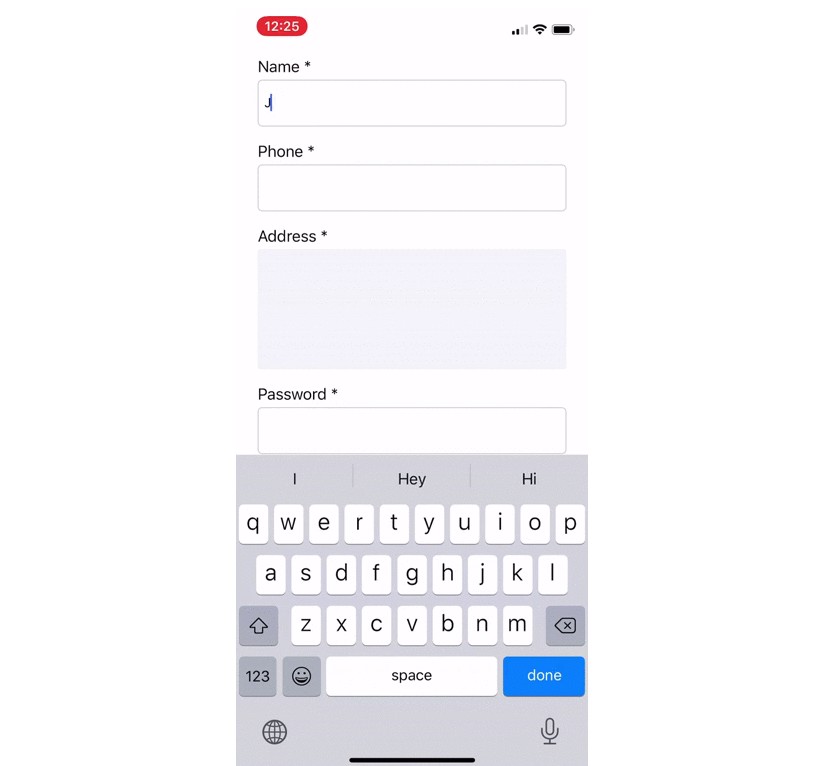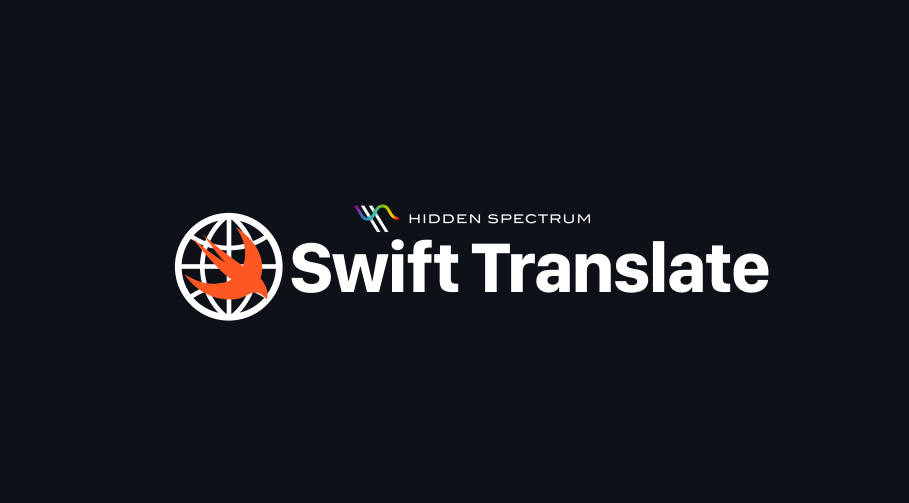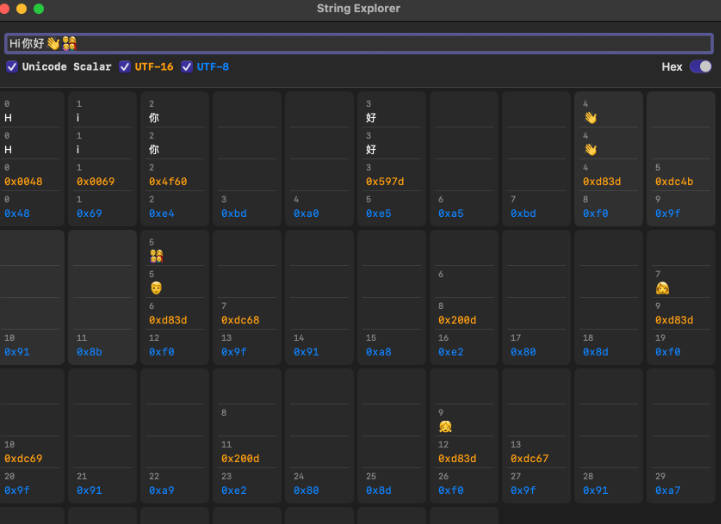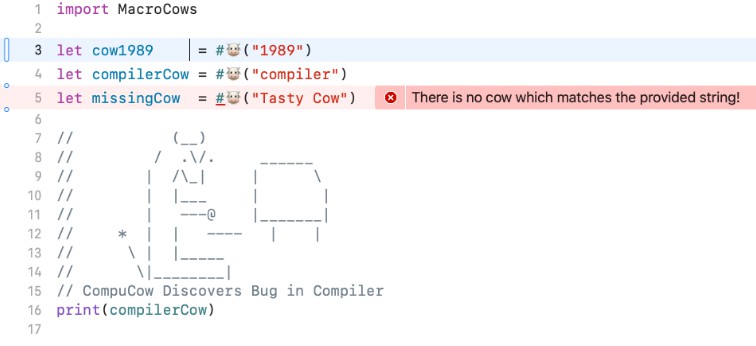Swift Validators
?
String validation for iOS.
Contents
ReactiveSwift + SwiftValidators
Want to use SwiftValidators with ReactiveSwift? SwiftValidatorsReactiveExtensions provides a set of extensions that play well with ValidatingProperty.
Installation
SwiftValidators is available on CocoaPods for iOS 9.0+, Xcode 8 and Swift 3.0
use_frameworks!
target 'MyProject' do
...
pod 'SwiftValidators'
...
end
It is also available through SPM:
import PackageDescription
let package = Package(
name: "MyProject",
targets: [],
dependencies: [
.Package(url: "https://github.com/gkaimakas/SwiftValidators.git",
majorVersion: 6)
]
)
Walkthrough
Usage
Validation is done using the apply function of a Validator. You can create a Validator manually or you can use on of the already available via static functions in the Validator class.
A Validator‘s apply function accepts an input as a nullable value that conforms to the StringConvertible protocol. By default String, NSString, Int, Float, Double and Bool conform to StringConvertible.
You can specify the Validator‘s behaviour when it’s input is nil if you are using the static Validator function by setting the nilResponse parameter to either true or false. By default nilResponse is set to false.
Validator.exactLength(3).apply("abc") //returns true
Validator.exactLength(3).apply(true) //returns false (the string representation of true is 'true')
Validator.exactLength(3).apply(nil) //returns false since `nilResponse` is set to false by default
Valuidator.exactLength(3, nilResponse: true).apply(nil) //returns true since we set nilResponse to true
For more examples on how to call each validator you can look at the unit tests.
Logical Operators
You can combine operators using the logical AND, logical OR and Logical NOT operators ( &&, || and ! respectively).
let combinedANDValidator = Validator.required() && Validator.isTrue()
The combinedANDValidator will be true only when the value is not empty and "true"
let combinedORValidator = Validator.isTrue() || Validators.isFalse()
The combinedORValidator will be true if the value is "true" or "false", otherwise it will be false.
let reversedValidator = !Validator.isTrue()
The reversedValidator will be false when the value equals "true" and true for all other values.
Available Validators
| Name | Description | Type | Arguments | Example |
|---|---|---|---|---|
| contains | checks if it is contained in the seed | func | String, Bool(nilReponse=false) | Validator.contains(“some seed”).apply(“ee”) |
| equals | checks if it equals another | func | String, Bool(nilReponse=false) | Validator.equals(“aa”).apply(“aa”) |
| exactLength | checks if it has the exact length | func | Int, Bool(nilReponse=false) | Validator.exactLength(2).apply(“aa”) |
| isASCII | checks if it is valid ascii string | func | Bool(nilReponse=false) | Validator.isASCII().apply(“SDGSFG”) |
| isAfter | checks if it is after the date | func | String, String, Bool(nilReponse=false) | Validator.isAfter(“23/07/2015”, format: “dd/MM/yyyy”).apply(“24/07/2015”) |
| isAlpha | checks if it has only letters | func | Bool(nilReponse=false) | Validator.isAlpha().apply(“abc”) |
| isAlphanumeric | checks if it has letters and numbers only | func | Bool(nilReponse=false) | Validator.isAlphanumeric().apply(“abc123”) |
| isBase64 | checks if it a valid base64 string | func | Bool(nilReponse=false) | Validator.isBase64().apply(“some string”) |
| isBefore | checks if it is before the date | func | String, String, Bool(nilReponse=false) | Validator.isBefore(“25/09/1987”, format: “dd/MM/yyyy”).apply(“29/03/1994”) |
| isBool | checks if it is boolean | func | Bool(nilReponse=false) | Validator.isBool().apply(“true”) |
| isCreditCard | checks if it is a credit card number | func | Bool(nilReponse=false) | Validator.isCreditCard().apply(“123”) |
| isDate | checks if it is a valid date | func | String, Bool(nilReponse=false) | Validator.isDate(“dd/MM/yyyy”).apply(“25/09/1987”) |
| isEmail | checks if it is an email | func | Bool(nilReponse=false) | Validator.isEmail().apply(“[email protected]“) |
| isEmpty | checks if it is an empty string | func | Bool(nilReponse=false) | Validator.isEmpty().apply(“”) |
| isFQDN | checks if it is fully qualified domain name | func | FQDNOptions or empty, Bool(nilReponse=false) | Validator.isFQDN().apply(“ABC”) |
| isFalse | checks if it is false | func | Bool(nilReponse=false) | Validator.isFalse().apply(“false”) |
| isFloat | checks if it is a float number | func | Bool(nilReponse=false) | Validator.isFloat().apply(“2.3e24”) |
| isHexColor | checks if it is a valid hex color | func | Bool(nilReponse=false) | Validator.isHexColor().apply(“#fafafa”) |
| isHexadecimal | checks if it is a hexadecimal value | func | Bool(nilReponse=false) | Validator.isHexadecimal().apply(“abcdef”) |
| isIP | checks if it is a valid IP (4 |6) | func | Bool(nilReponse=false) | Validator.isIP().apply(“0.0.0.0”) |
| isIPv4 | checks if it is a valid IPv4 | func | Bool(nilReponse=false) | Validator.isIPv4().apply(“0.0.0.0”) |
| isIPv6 | checks if it is a valid IPv6 | func | Bool(nilReponse=false) | Validator.isIPv6().apply(“::”) |
| isISBN | checks if it is a valid ISBN | func | ISBN, Bool(nilReponse=false) | Validator.isISBN(.v13).apply(“asdf”) |
| isIn | checks if the value exists in the supplied array | func | Array, Bool(nilReponse=false) | Validator.isIn([“a”,”b”,”c”]).apply(“a”) |
| isInt | checks if it is a valid integer | func | Bool(nilReponse=false) | Validator.isInt().apply(“123”) |
| isLowercase | checks if it only has lowercase characters | func | Bool(nilReponse=false) | Validator.isLowercase().apply(“asdf”) |
| isMongoId | checks if it a hexadecimal mongo id | func | Bool(nilReponse=false) | Validator.isMongoId()(“adfsdffsg”) |
| isNumeric | checks if it is numeric | func | Bool(nilReponse=false) | Validator.isNumeric().apply(“+123”) |
| isPhone | checks if it is a valid phone | func | Phone, Bool(nilReponse=false) | Validator.isPhone(.el_GR).apply(“6944848966”) |
| isPostalCode | checks it is a valid postal code | func | PostalCode, Bool(nilResponse=false) | Validator.isPostalCode(.GR).apply(“30 006”) |
| isTrue | checks if it is true | func | Bool(nilReponse=false) | Validator.isTrue().apply(“true”) |
| isURL | checks if it is a valid URL | func | Bool(nilReponse=false) | Validator.isURL().apply(“http://www.google.com“) |
| isUUID | checks if it is a valid UUID | func | Bool(nilReponse=false) | Validator.isUUID().apply(“243-124245-2235-123”) |
| isUppercase | checks if has only uppercase letter | func | Bool(nilReponse=false) | Validator.isUppercase().apply(“ABC”) |
| maxLength | checks if the length does not exceed the max length | func | Int, Bool(nilReponse=false) | Validator.maxLength(2).apply(“ab”) |
| minLength | checks if the length isn’t lower than | func | Int, Bool(nilReponse=false) | Validator.minLength(1).apply(“213”) |
| required | checks if it is not an empty string | func | Bool(nilReponse=false) | Validator.required().apply(“”) |
| regex | checks that the value matches the regex from start to finish | func | String, Bool(nilReponse=false) | Validator.regex(pattern).apply(“abcd”) |
*FQDNOptions is a class that is used on isFQDN for configuration purposes. It can be instantiated like this:
FQDNOptions(requireTLD: Bool, allowUnderscores: Bool, allowTrailingDot: Bool)
License MIT
Copyright (c) George Kaimakas [email protected]
Permission is hereby granted, free of charge, to any person obtaining
acopy of this software and associated documentation files (the
"Software"), to deal in the Software without restriction, including
without limitation the rights to use, copy, modify, merge, publish,
distribute, sublicense, and/or sell copies of the Software, and to
permit persons to whom the Software is furnished to do so, subject to
the following conditions:
The above copyright notice and this permission notice shall be
included in all copies or substantial portions of the Software.
THE SOFTWARE IS PROVIDED "AS IS", WITHOUT WARRANTY OF ANY KIND,
EXPRESS OR IMPLIED, INCLUDING BUT NOT LIMITED TO THE WARRANTIES OF
MERCHANTABILITY, FITNESS FOR A PARTICULAR PURPOSE AND
NONINFRINGEMENT. IN NO EVENT SHALL THE AUTHORS OR COPYRIGHT HOLDERS BE
LIABLE FOR ANY CLAIM, DAMAGES OR OTHER LIABILITY, WHETHER IN AN ACTION
OF CONTRACT, TORT OR OTHERWISE, ARISING FROM, OUT OF OR IN CONNECTION
WITH THE SOFTWARE OR THE USE OR OTHER DEALINGS IN THE SOFTWARE.




